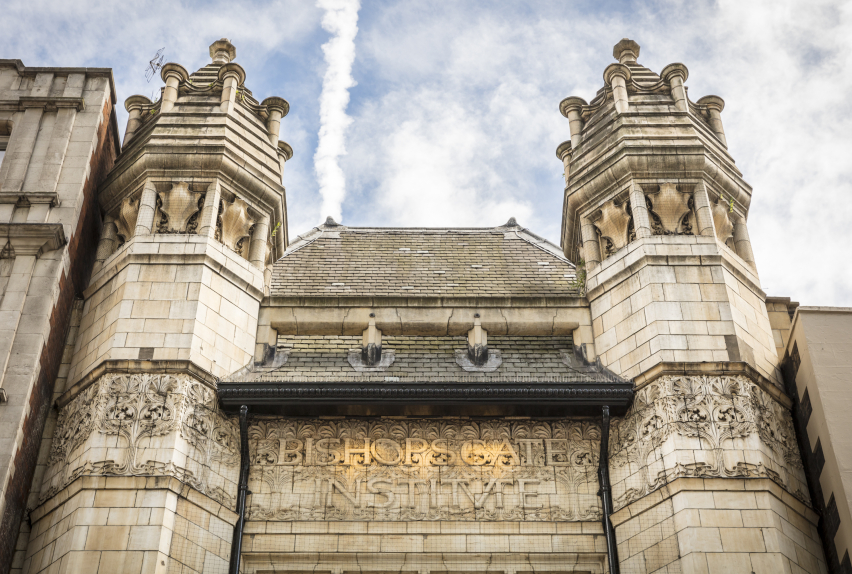Gallery: The LGBTQ+ community and Section 28
News Story
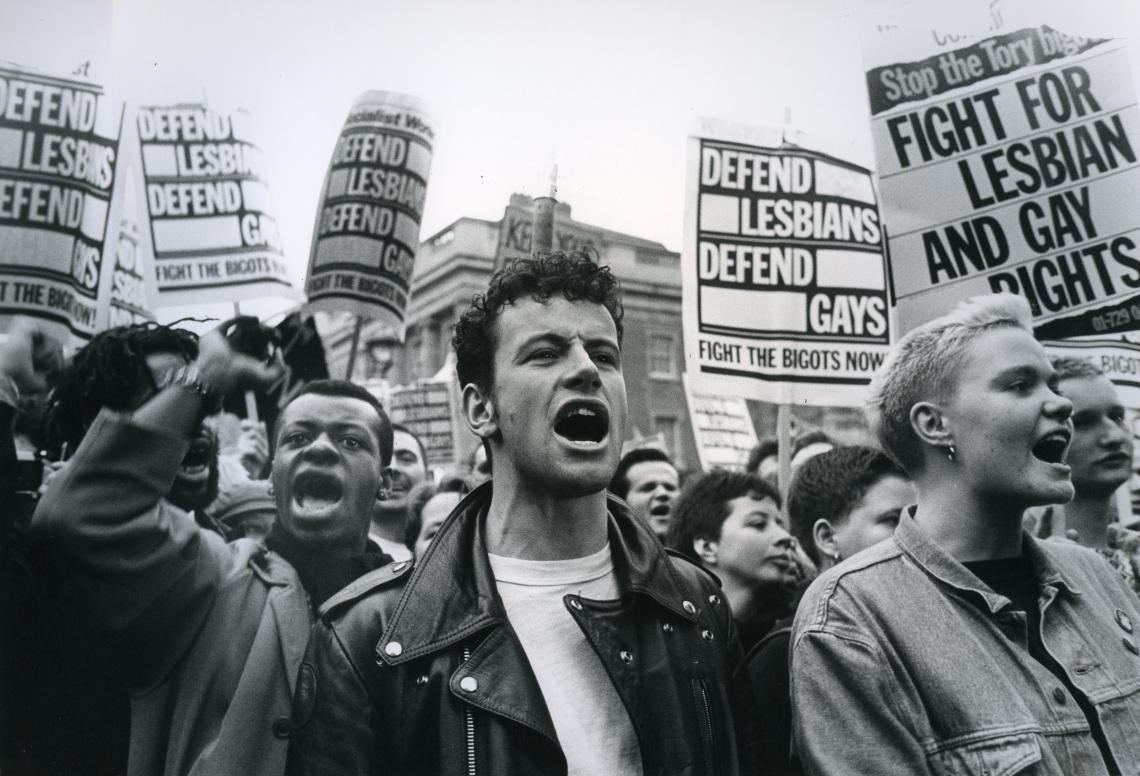
Protest against Section 28
Credit: Brenda Prince, Format Photography AgencyToday marks the anniversary of the Section 28 legislation being introduced, which banned the "promotion of homosexuality" by local authorities in 1988. This meant schools and councils were unable to provide young LGBTQ+ people with help.
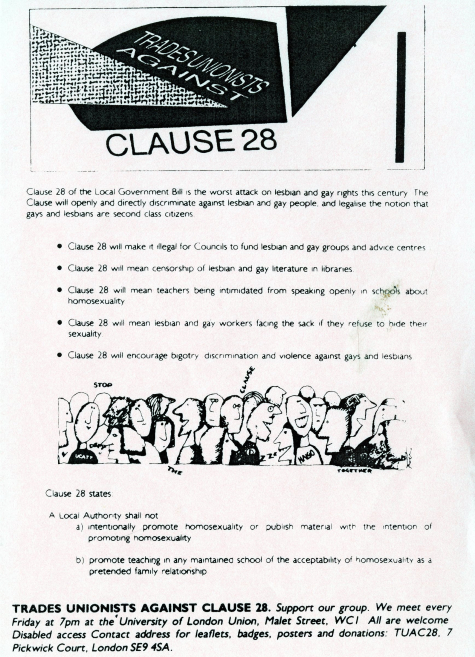
This homophobic legislation was partly introduced following the outcry over "Jenny Lives with Eric and Martin" being available to schoolchildren in Haringey. This picture book described the life of five-year-old Jenny, her father Martin, and his boyfriend Eric who lives with them.
Newspapers capitalised on this story, with The Sun publishing an article called: "Vile book in schools!" There was also increasing homophobia in the mainstream press due to the Aids crisis and, when Margaret Thatcher spoke at the 1987 Conservative Party Conference, she declared how children were "being taught that they have an inalienable right to be gay" and "all of those children are being cheated of a sound start in life".
Section 28 (otherwise known as Clause 28 and Clause 27) was introduced the year after this conference, and there were demonstrations in protest of the legislation. This included protestors abseiling into the House of Lords and crashing BBC News.
We're honoured to hold photographs, badges, posters, and flyers from campaigns against Section 28, which you can explore below:
Image gallery
A gallery slider
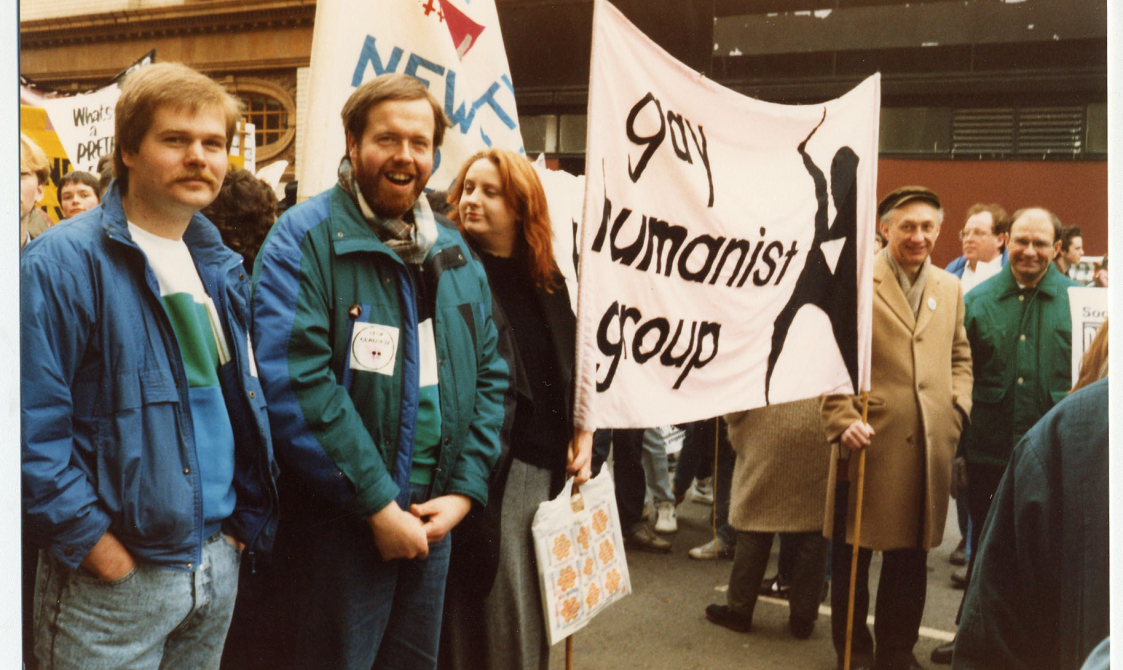
Stop Clause 28 demonstration in Manchester, 1988
Credit : Gay Humanist Group Archive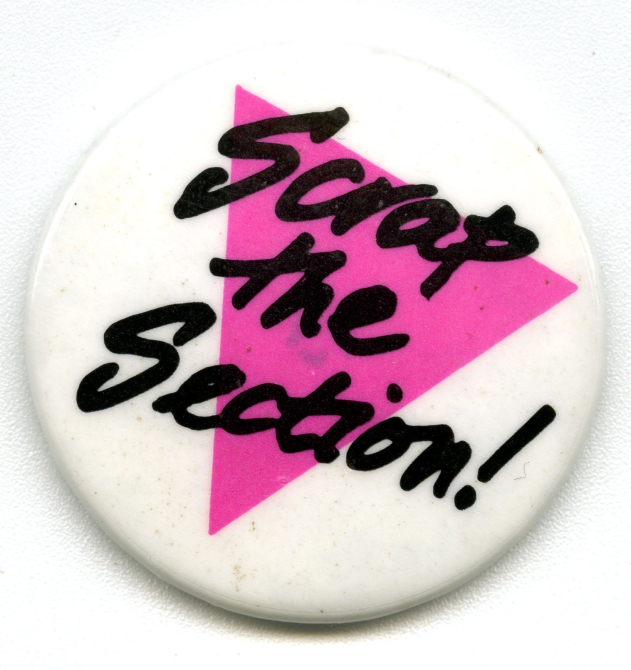
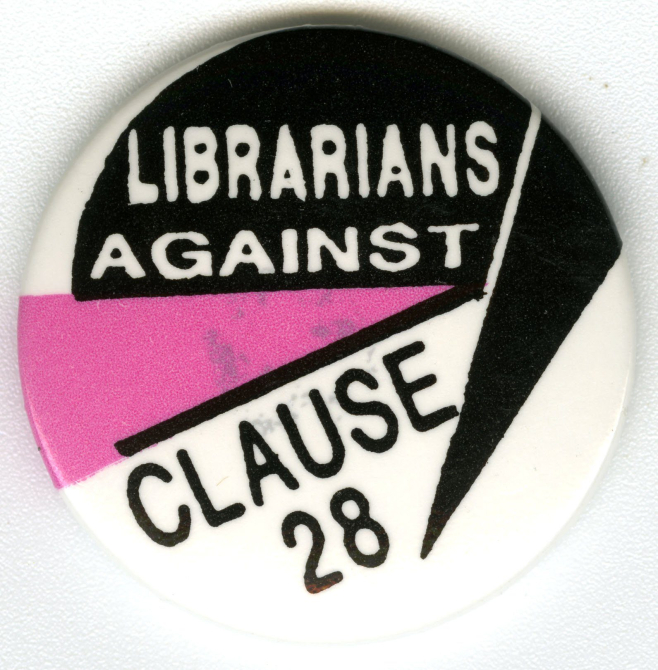

Placard from Section 28 demonstration by LGBTQ+ activist group OutRage!
Credit : OutRage! Archive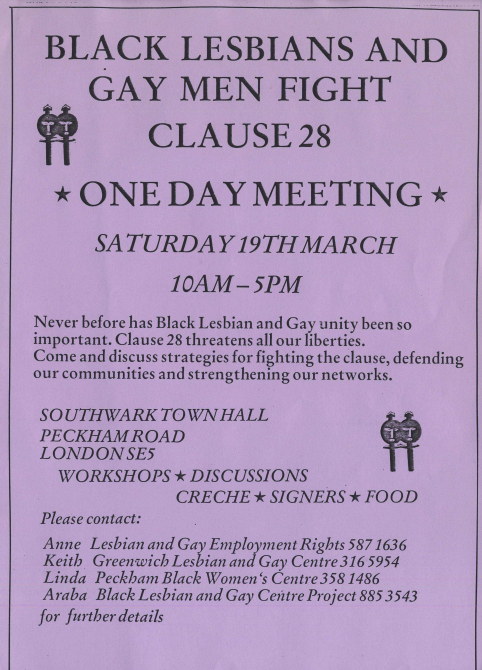
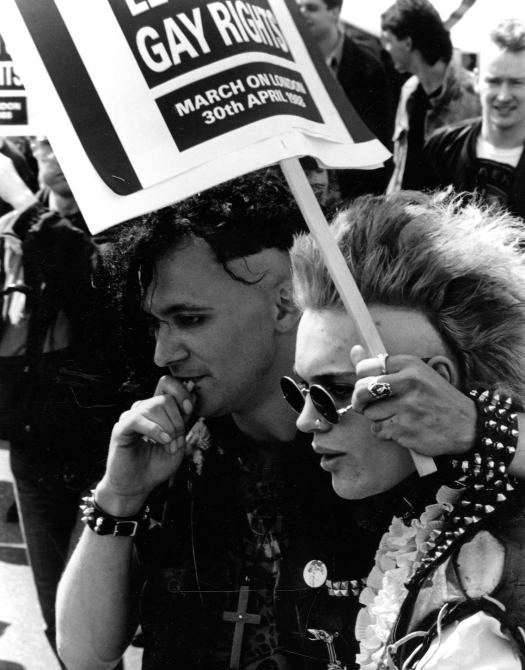
Stop the Clause march, 30 April 1988
Credit : Gordon Rainsford Archive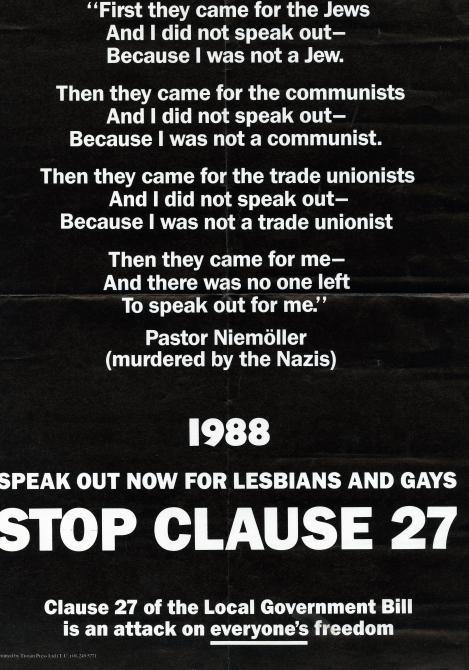
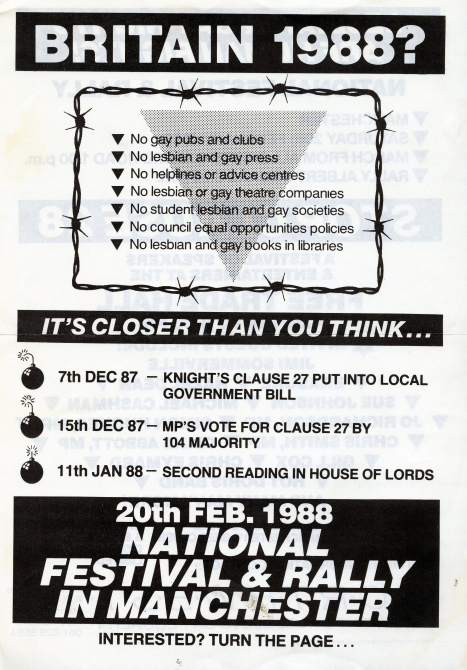

Stop the Clause march, 16 February 1991
Credit : Gordon Rainsford Archive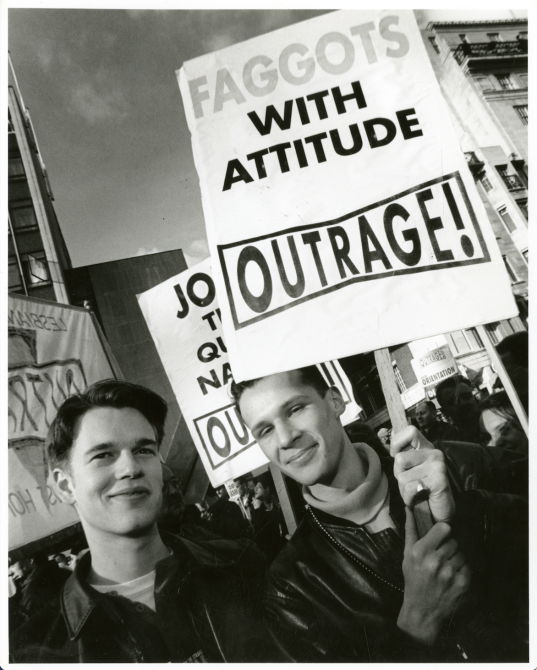
Stop the Clause march, 16 February 1991
Credit : Gordon Rainsford Archive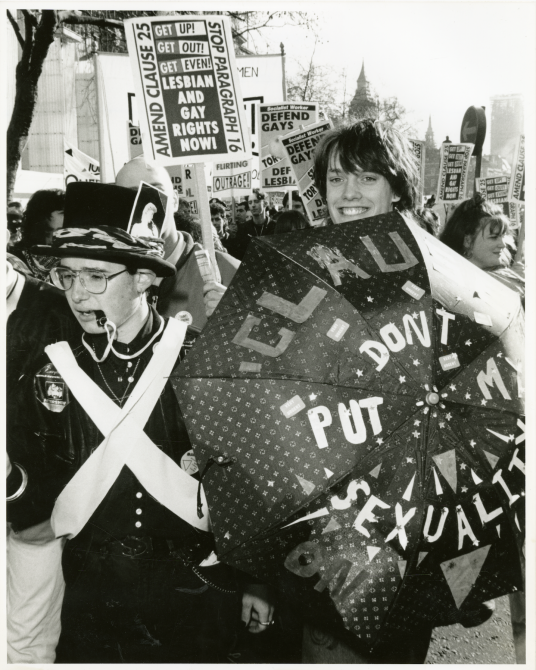
Stop the Clause march, 16 February 1991
Credit : Gordon Rainsford Archive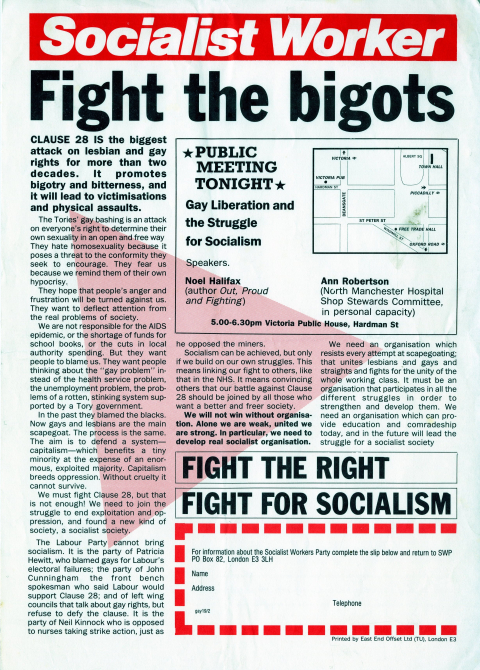
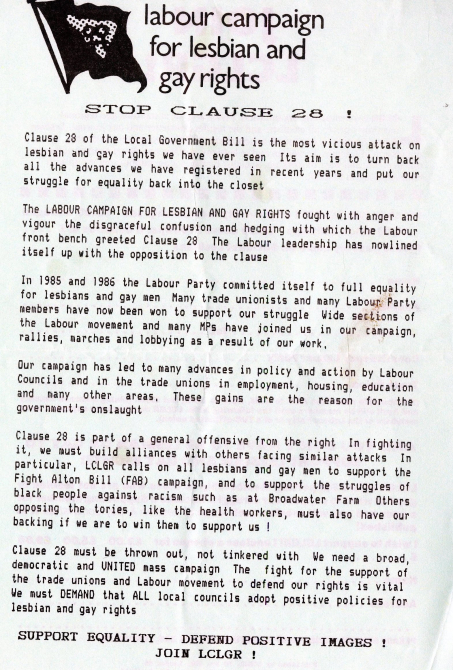

Protest against Section 28
Credit : Brenda Prince, Format Photography Agency
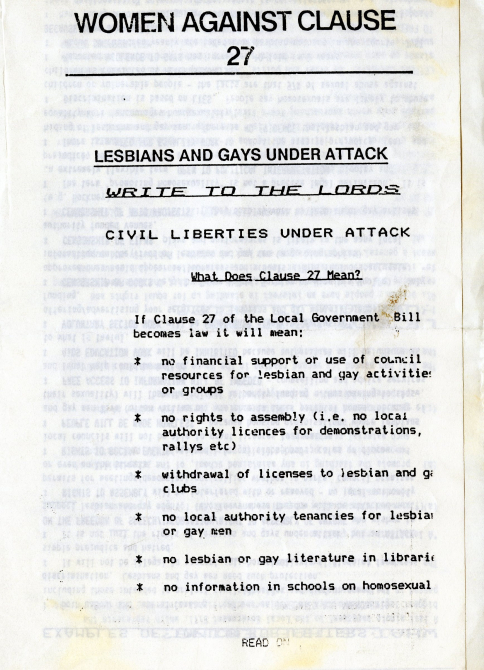
The impact of Section 28
Section 28 was finally repealed on 21 June 2001 in Scotland and on 18 November 2003 in the rest of the UK. Though no longer in place, the shadow of this legislation can still be felt.
Those that went to school while Section 28 was in place found themselves lacking a community at a time when it was most needed. You can listen to a talk that was held at Bishopsgate Institute where Peter Tatchell, Lisa Power MBE, and Michael Cashman MEP discussed the impact of this legislation.
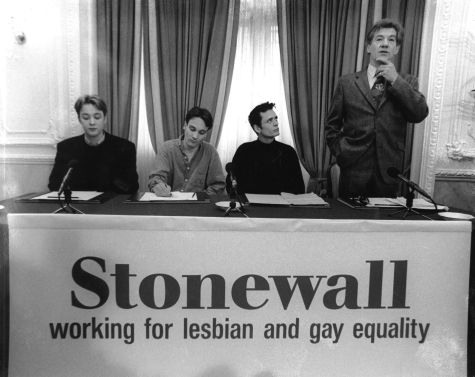
Stonewall was founded in 1989 by a small group of women and men who had been active in the struggle against Section 28
Credit: Stonewall ArchiveSchools today are also working to escape Section 28's shadow, with the 2007 Stonewall School Report finding that "two in five LGBT students have never been taught about LGBT issues at school or college". Stonewall itself was set up in response to Section 28, and you can delve into their archives here.
Though we may still feel the impact of this homophobic legislation, the legacy of Section 28 is also found in the resistance that LGBTQ+ communities showed in face of it. Our Special Collections & Archives have now re-opened by appointment-only, and you can explore more stories of queer resistance by visiting our collections.
Looking to learn more?
What We Do
